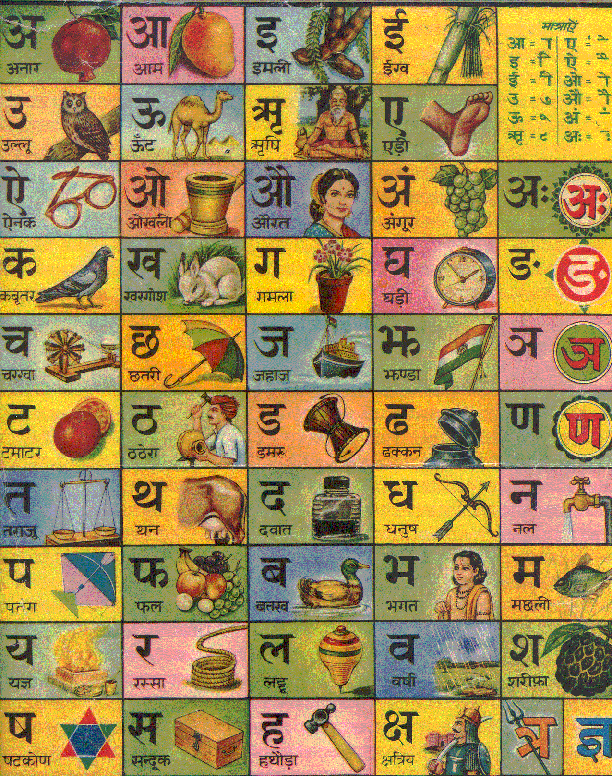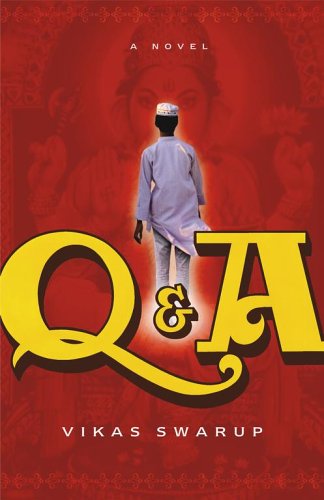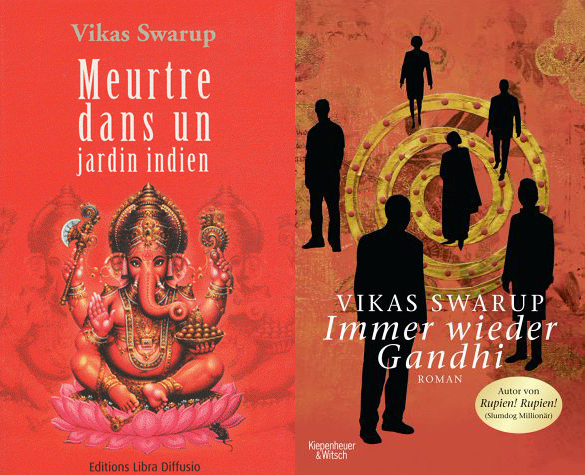 Still wrapped in my dilemma over whether Indians really speak as they do in Tarquin Hall’s Vish Puri novels (The Case of the Missing Servant and The Case of the Man Who Died Laughing), I asked some Indian friends if, as I suspected, the peculiar syntax of dialog such as “Don’t do tension, sir,” was in fact a verbatim translation from Hindi. Turns out it was—like translating “No tengo que demostrarle divisas putrefacta” as “I don’t have to show you any badges stinking.”
Still wrapped in my dilemma over whether Indians really speak as they do in Tarquin Hall’s Vish Puri novels (The Case of the Missing Servant and The Case of the Man Who Died Laughing), I asked some Indian friends if, as I suspected, the peculiar syntax of dialog such as “Don’t do tension, sir,” was in fact a verbatim translation from Hindi. Turns out it was—like translating “No tengo que demostrarle divisas putrefacta” as “I don’t have to show you any badges stinking.”
Some readers might object, but I accept this as Hall’s way of indicating that the conversations in his book are meant to be taking place in Hindi. I’ll also admit that I found the first book charming enough that I couldn’t be bothered to nitpick further.
Then I began reading Vikas Swarup’s Six Suspects to see how he, an Indian diplomat born and raised in Uttar Pradesh, handled dialog. That’s where a new dilemma arose.
 Swarup’s first novel, Q&A, was adapted into the film Slumdog Millionaire, and we all know how that turned out. (Hello, Oscar!) So far so good. I had high hopes.
Swarup’s first novel, Q&A, was adapted into the film Slumdog Millionaire, and we all know how that turned out. (Hello, Oscar!) So far so good. I had high hopes.
Six Suspects centers on the murder of a loathsome, reprehensible gangster with ties to both Delhi and Uttar Pradesh, and it’s told through the overlapping tales of the six individuals most likely to have committed the crime. Also good. Swarup did a swell job of weaving disparate threads into an attractive blanket in Q&A. I was curious to see if he could do it again.
I expected that Swarup, an “insider” as opposed to Hall’s “outsider,” would have a keen grasp on the way Indians speak to one another. As far as I could tell, he did.
But then we encounter the character of Larry Page, and there the blanket unravels. You see, Larry is an American, which makes things tricky for me as an American reader. For I might not know how Indians speak, but I sure as shootin’ know how Americans speak, and what Swarup done put down on that there page just ain’t it. My outsider author dilemma has been inverted.
Swarup’s Larry Page is not the co-founder of Google, although that misperception does figure into the story. He is, instead, a pro wrestling-lovin’, forklift drivin’ Walmart employee from Waco, Texas, (where those “Fibi guys” tangled with that “Koresh dude” back in ’93), who packs clichés into his sentences tighter than a rattlesnake swallowing a jackrabbit. He’s a buffoon broader than yer granny’s behind, dumber than a box of rocks, more useless than a gelding at a stud farm. . .
“Name the ten amendments to the U.S. constitution,” one character demands of our Larry.
“Aw shucks,” he replies, “that’s harder than Chinese arithmetic. By the way, what’s a constitution?”
Prognosis: Larry is TSTL, too stupid to live.
TSTL, I should note, is a common lament among romance readers who despair over certain heroines’ incredible naiveté, poor judgment and/or weak character. The operative word being “incredible,” as in “too extraordinary or improbable to be believed.”
There’s always potential for subtlety to be lost in translation, or indeed for meaning or intent to be lost completely. Case in point: Six Suspects was published as Meurtre dans un jardin indien (Murder in an Indian Garden) in French and as Immer wider Gandhi (Again and Again Gandhi) in German. Neither title has any fundamental relevance to the story. The former is inaccurate, and the latter is far more peculiar than pertinent.

Cultural “translation” is trickier still, especially for the outsider writer, which Swarup was in this case. If he was depicting Larry as a caricature—and I have to think he was—Swarup was out of his depth. An outsider who takes aim at another culture better know where that culture’s heart lies. Satire that truly stings comes from intimate knowledge. It resonates because there’s truth at its core. Otherwise, it’s just a cheap shot.
It’s not the characterization of the American ignoramus I object to—let’s face it, they’re hardly an endangered species. The problem is the clownish, inauthentic way he is depicted. Like the best villains, the best imbeciles must be believable enough to be terrifying.
Leslie Gilbert Elman blogs intermittently at My Life in Laundry. She’s written two trivia books and has a few unpublished fiction manuscripts in the closet to keep the skeletons company.

Excellent points, cogently made!
Thank you!